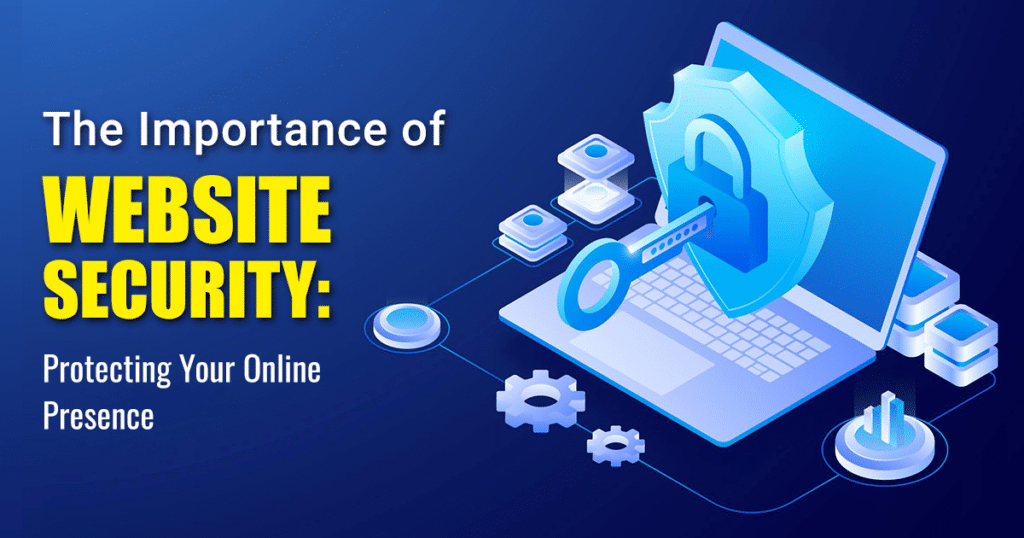If you run an online business, you know how important your website is. It’s your storefront, your portfolio, your brand, and your connection with your customers. But did you know that your website is also a target for hackers who want to steal your data, damage your reputation, or disrupt your operations?
Hackers don’t care if your website is big or small, famous or obscure. They use automated tools to scan and attack any website they can find on the Internet. And they have many tricks up their sleeves to compromise your site and cause havoc.
That’s why website security is essential for any online business. Website security is the practice of protecting your website from unauthorized access, use, modification, destruction, or disruption. It helps you safeguard your website content and data, as well as your users’ personal data and privacy. It also helps you maintain your website performance and availability, as well as your website reputation and trustworthiness.
But how do you secure your website? Website security can be complex and confusing, especially if you’re not a web expert. That’s why we’ve created this simple guide to help you understand the basics of website security and what you can do to keep your site safe from hackers.
Here are some easy steps you can take to secure your website:
- Update everything. One of the easiest ways to prevent hackers from exploiting your site is to keep everything up to date. This includes your web server, web application, plugins, themes, and any other software you use on your site. Updating these components regularly will ensure that they have the latest security patches and bug fixes that can fix any vulnerabilities or errors.
- Use strong passwords. Another simple way to protect your site is to use strong passwords for your website accounts and databases. Strong passwords are long, complex, and unique. They should contain a mix of letters, numbers, symbols, and cases. They should also be different for each account and database. Avoid using common or easy-to-guess passwords like “password” or “123456”. And never share your passwords with anyone or write them down.
- Use HTTPS. HTTPS is a protocol that encrypts the communication between your website and your users’ browsers. It makes sure that no one can intercept or tamper with the data that is sent over the network. To use HTTPS, you need to get and install an SSL/TLS certificate on your web server. This certificate will also show a padlock icon and a green address bar in the browser, which will boost your users’ confidence and trust in your site.
- Use a firewall. A firewall is a device or software that filters the incoming and outgoing traffic to your website. It blocks any malicious requests or attacks from reaching your web server. You can use a web application firewall (WAF) to protect your site from common web threats like SQL injection, cross-site scripting (XSS), brute force attacks, etc. A WAF will also monitor and log the activity on your site, which will help you detect and respond to any incidents.
- Scan for malware. Malware is any malicious code that can infect your site and cause harm to your site or users. Malware can be hidden in files, databases, or scripts on your web server. It can also be injected by hackers through vulnerabilities or backdoors on your site. You should scan your site regularly for malware using a reputable security tool. If you find any malware on your site, you should remove it as soon as possible and investigate how it got there.
- Backup your data. Backups are copies of your site files and databases that you can restore in case of an emergency. Backups can help you recover your site quickly if it gets hacked or corrupted. You should backup your data frequently and store it in a safe location. You should also test your backups periodically to make sure they work properly.
- Educate yourself and your team. Website security requires vigilance in all aspects of website design and usage. You should learn about the best practices and common pitfalls of website security and educate your team members as well. You should also stay informed about the latest trends and threats in the web security landscape. The more you know about website security, the better prepared you will be to defend your site.
Website security is not a one-time task but a continuous process that requires constant assessment and improvement. By following these steps, you can enhance the security of your website and protect it from hackers.
We hope this guide has helped you understand the basics of website security and what you can do to keep your site safe. If you have any questions or need any help with website security, feel free to contact us. We’re here to help you secure your online presence.

